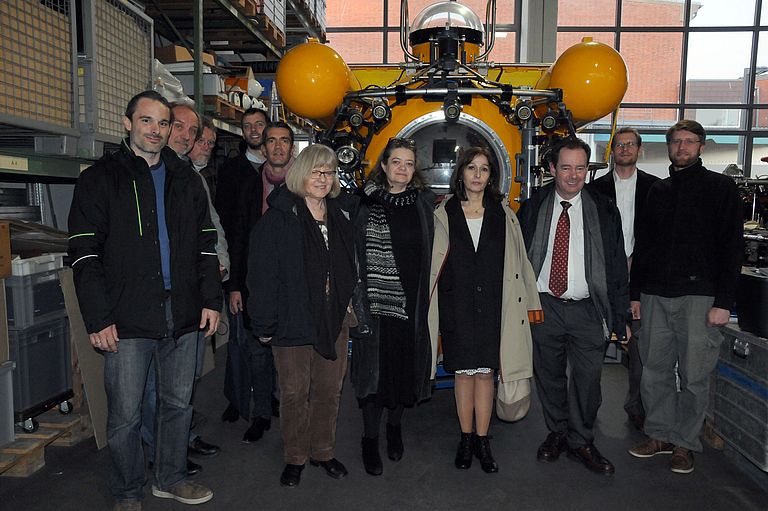The Fine Line between Ecology and Economy
EU politicians gathered information on fisheries management
What types of fish are threatened? Which regions are overfished? Are there any methods to using the natural fish stocks in a sustainable manner, and thus to finding a sensible balance between the use of fish stocks and their protection? These and similar issues were addressed by some members of the Fisheries Committee of the European Parliament, chaired by EU Parliamentarian Ulrike Rodust, during a visit at GEOMAR.
Dr. Rainer Froese, an expert in sustainable fisheries management at GEOMAR, presented results of recent studies which scientists in Kiel have developed jointly with economists as part of their research in the Cluster of Excellence "The Future Ocean". "A sustainable and profitable management of fish stocks, which takes into account both economic and ecological aspects, is possible," said Dr. Froese. With the reform of the Common Fisheries Policy, the EU had taken big steps in the right direction. The new law must now be consistently implemented in order to secure the long-term stocks and to enable sustainable use, Froese added.
Dr. Jan Dierking, Department of Evolutionary Ecology of Marine Fishes at GEOMAR, presented work on the effects of climate change on the Baltic Sea fish stocks. Because the Baltic Sea is a borderline habitat for many marine creatures due to the low salinity and oxygen content, additional changes, such as those caused by climate variability, often cause strong reactions within the stocks, said Dr. Dierking. Furthermore, the genetic composition of the stock is of great importance for the adaptability to changing environmental conditions.
Ulrike Rodust, a member of the EU Parliament, promised to continue working for a sustainable fisheries management in Europe, even if leads to restrictions on fisheries in the short term, because it is the only way to secure the stocks in the long term, thereby ensuring a reliable food source for future generations.
This visit to GEOMAR by the parliamentarians was part of a multi-day programme in Schleswig-Holstein and concluded with a guided tour of the facilities.



